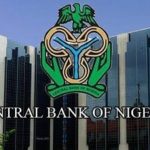Nigeria’s banking regulator has issued a sweeping directive requiring commercial banks to bring insider lending within statutory limits or risk regulatory sanctions. The Central Bank of Nigeria (CBN) has set a 180-day deadline for financial institutions to regularize all insider-related credit facilities that exceed the limits prescribed under the Banking and Other Financial Institutions Act (BOFIA) 2020.
The move is part of broader efforts to curb excessive exposure to politically connected insiders, a persistent governance risk in Nigeria’s financial sector. Insider lending—where banks extend credit to directors, top shareholders, or affiliates—has long been a source of regulatory concern. The CBN’s latest directive aims to close loopholes that previously allowed banks to exceed lending caps with extended compliance timelines.
At the core of the directive is Section 19 of BOFIA 2020, which restricts insider lending to a set percentage of a bank’s total loan book. While some banks had previously secured CBN approvals for such facilities without clear deadlines for compliance, the new directive mandates full adherence within six months. Banks must also submit periodic reports detailing their insider lending portfolios and steps taken to align with the regulations.
For Nigeria’s largest banks, the new rules may not pose a significant challenge, as many have spent the past decade strengthening corporate governance. However, smaller and mid-sized banks—where insider lending is more prevalent—could struggle to comply without significant balance sheet restructuring. Some may need to unwind large insider positions or seek refinancing solutions to meet the deadline.
Analysts warn that failure to comply could expose banks to heightened regulatory scrutiny, potential penalties, and capital adequacy concerns at a time when the industry is navigating broader macroeconomic challenges.
The timing of the CBN’s directive is critical, coming as Nigeria’s banking sector undergoes a major transformation driven by a recapitalization push that is expected to reshape the industry. The regulator is keen to enforce stronger governance frameworks ahead of anticipated industry consolidation.
Limiting insider credit exposure is also part of broader financial sector reforms aimed at preventing systemic risks. The 2009 banking crisis—triggered in part by reckless insider lending—remains a cautionary example of the dangers of lax oversight.
One of the most immediate consequences of the directive is its impact on bank directors with significant ownership stakes. Under BOFIA 2020, directors who have secured large credit facilities from their own banks now face three choices: repay their loans, restructure them under different terms, or step down from their board positions to retain borrowing access. This could lead to boardroom shakeups, especially in banks where influential shareholders also serve as directors.
With the 180-day deadline now in motion, banks are expected to move swiftly, possibly through loan restructuring, debt sales, or equity injections to reduce excessive insider exposure. The directive could also reshape lending policies, risk appetite, and strategic planning for financial institutions.
While the short-term impact may be challenging, analysts see the move as a necessary step toward strengthening Nigeria’s banking sector. By enforcing stricter governance rules, the CBN is reinforcing its commitment to a more transparent and resilient financial system—one where lending is based on merit rather than influence.










